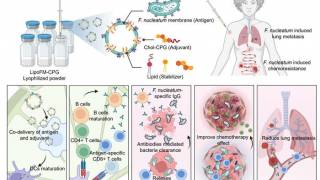Canada Cutting Cancer Rates With HPV Vaccine

British Columbia’s school-based human papillomavirus (HPV) immunization program is dramatically reducing rates of cervical pre-cancer in women, according to a new study.
The study which was recently published in the Journal of Infectious Diseases on August 23, 2019, found women who had received the HPV vaccine in 6th Grade had a 57 percent reduction in the incidence of cervical pre-cancer cells, compared to unvaccinated women.
Pre-cancer refers to abnormal cell growth in the cervix most often discovered during routine Pap tests. If not treated, pre-cancer can develop into cervical cancer.
These researchers from the province of British Columbia (BC), Canada, concluded in an October 16, 2019, press release, ‘immunization with HPV vaccines between 9 and 14 years of age should be encouraged.’
“The reports on the 12-year program are positive,” said Adrian Dix, BC’s Minister of Health.
“The dramatic success – pre-cancer rates dropping by over half, shows us the importance of having children immunized early to protect their lives.”
The evaluation of the HPV vaccination program in B.C. was conducted jointly by researchers at BC Cancer, the BC Centre for Disease Control, BC Women’s Hospital + Health Centre and the University of British Columbia and highlights the success of the program in reducing pre-cancers.
In 2008, the BC Province implemented a voluntary publicly funded school-based HPV immunization program. Eleven years later, the first groups of women vaccinated through this program have reached adulthood and entered the Cervix Screening Program.
By linking records from the provincial Cervix Screening Program with immunization registries, researchers were able to compare outcomes between the women who had received vaccinations to those who had not.
Women included in the study received the quadrivalent vaccine, which protects against 2 types of HPV responsible for approximately 70 percent of all cervical cancers.
"The HPV immunization program in B.C. is in its 12th year now, and it's very gratifying to be able to show such positive outcomes through prevention of this infection and its complications in women," said Dr. Monika Naus, medical director, communicable diseases and immunization service, and professor at the school of population and public health at the University of British Columbia.
The HPV vaccine that is now administered for free to both girls and boys in the school-based program protects against 9 types of the virus that cause about 90 percent of cervical cancers.
This indicates the rates of pre-cancer are expected to decline even further in the coming years.
“We are excited by these initial findings,” said Dr. Gina Ogilvie, senior research advisor, BC Women’s Hospital + Health Centre and professor, school of population and public health, University of British Columbia.
“This study contributes to the growing body of evidence highlighting the positive impact of the HPV vaccine and regular cervical screening in preventing cervical cancer. And, with increased vaccine uptake, we would expect to see a further decrease in cervical cancer rates.”
HPV is common in both men and women and can be easily spread through sexual contact. Most people will contract HPV at some point in their lives, and it is important to get vaccinated before becoming sexually active.
Although most HPV infections clear up on their own, some cause pre-cancerous lesions that can develop into cancer over time if not treated. It can take more than 10 years for pre-cancerous cells to develop into cervical cancer.
Regular cervical cancer screening is important to identify abnormal or pre-cancerous cells before they cause symptoms.
HPV vaccine news
- Preventing Oral HPV Infections Can Prevent Oropharyngeal Cancers
- Does HPV Vaccine Reduce HIV-Positive Men Oral Cancer Risks?
- Doctors, Nurses, and Pharmacists Can Increase HPV Vaccinations By Sharing Their Insights
“The HPV immunization program in B.C. is in its 12th year now, and it’s very gratifying to be able to show such positive outcomes through prevention of this infection and its complications in women,” said Dr. Monika Naus, medical director, communicable diseases and immunization service, and professor at the school of population and public health at the University of British Columbia.
Quick Facts
- The HPV vaccine is provided free to girls and boys in Grade 6 as part of routine school vaccination programs.
- One-third of eligible students in B.C. have not been fully immunized against HPV.
- HPV is so common that the majority of sexually active women get the virus at some point in their lives.
- The World Health Organization recently announced that the elimination of cervical cancer is now one of its top priorities.
“This study reinforces the tremendous importance of school-based immunization programs in our province,” said Rob Fleming, Minister of Education. “The decline we are seeing in HPV-related cancer rates highlights how strong partnerships between school districts and health authorities can significantly improve the well-being of B.C. students.”
The USA’s Advisory Committee on Immunization Practices recommends HPV vaccination with Gardasil 9 for all boys and girls at age 11 or 12, and for people through age 26 if they weren’t already vaccinated.
>> Gardasil 9 vaccine discounts <<
Visit BC Cancer’s Cervix Screening Program to learn more.
HPV Vaccine news published by Vax-Before-Cancer
Our Trust Standards: Medical Advisory Committee
























